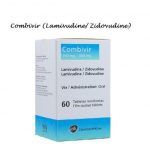Contents
Side Effects of Colestid (colestipol)
Colestid (colestipol) is an oral cholesterol-lowering drug used with dietary modifications to treat high blood cholesterol levels.
Colestid is also used to treat diarrhea after certain intestinal surgery and itching associated with partial bile flow obstruction due to liver disease.
Itching occurs due to bile acid accumulation in the body. Colestid does not get absorbed into the body; instead, it binds to bile acids in the intestine and promotes their elimination in the stool.
Bile acids are made in the liver from cholesterol and are secreted into bile, which enters the intestine. Most of the bile acids are reabsorbed in the intestine and recycled through the liver and bile.
By promoting bile acid elimination, Colestid stimulates the liver to produce more bile acids from cholesterol, which reduces cholesterol levels. Colestid works similarly to cholestyramine (Questran).
Common side effects of Colestid include:
- constipation,
- abdominal pain,
- abdominal cramps,
- indigestion,
- abdominal distension,
- diarrhea,
- dizziness,
- gas (flatulence),
- nausea, and
- vomiting.
Serious side effects of Colestid include:
- ulcers,
- reduced nutrient absorption,
- fatty stools and stomach or intestinal bleeding,
- fecal impaction,
- esophageal obstruction,
- gallbladder inflammation, and
- gallstones.
Colestid interacts with various drugs, including carbamazepine, hydrochlorothiazide, propranolol, tetracyclines, and fat-soluble vitamins (A, D, and K). Separating the doses by several hours can prevent these interactions.
Colestid has a potential interaction with warfarin, a blood thinner. To avoid this interaction, doses of warfarin and Colestid should be separated by at least 4-6 hours.
Pregnant women and nursing mothers should exercise caution when taking Colestid as it may interfere with proper nutrient absorption and potentially harm the fetus or nursing infant.
Important side effects of Colestid (colestipol)
The most common side effect is constipation. Other less frequent side effects include:
Rarely, ulcers, reduced nutrient absorption, fatty stools, and stomach or intestinal bleeding may occur.
Other serious side effects of colestipol include:
- Fecal impaction
- Esophageal obstruction
- Gallbladder inflammation
- Ulcers
- Gallstones
Colestid (colestipol) side effects for healthcare professionals
Gastrointestinal
- The most common adverse reactions are confined to the gastrointestinal tract.
- To minimize gastrointestinal disturbance and achieve optimal LDL-C lowering effect, a gradual increase in dosage is recommended.
- Constipation is the major complaint, which can be managed with increased fluid intake, additional dietary fiber, and stool softeners if necessary.
- Some patients may require decreased dosage or discontinuation of therapy.
- Other less frequent gastrointestinal complaints include abdominal discomfort, intestinal gas, indigestion, diarrhea, and nausea and vomiting.
- Infrequent reports of bleeding hemorrhoids and blood in stool.
- Peptic ulceration, cholecystitis, and cholelithiasis have been rarely reported.
- Difficulty swallowing and transient esophageal obstruction have been rarely reported in patients taking Colestid Tablets.
- Transient and modest elevations of liver enzymes have been observed in some patients.
Commonly reported adverse reactions that are not gastrointestinal include chest pain, rash, musculoskeletal pain, headache, and fatigue.
Due to its anion exchange resin properties, colestipol may interact with other drugs, delaying or reducing their absorption. Therefore, other medications should be taken one hour before or four hours after Colestid to avoid interference with their absorption.
Reduced absorption of chlorothiazide, tetracycline, furosemide, penicillin G, hydrochlorothiazide, and gemfibrozil has been reported when taken with colestipol hydrochloride.
No depressant effect on blood levels has been noted when colestipol hydrochloride was administered with aspirin, clindamycin, clofibrate, methyldopa, nicotinic acid, tolbutamide, phenytoin, or warfarin.
Summary
Colestid (colestipol) is an oral cholesterol-lowering drug used with dietary modifications to treat high blood cholesterol levels. Common side effects include constipation, abdominal pain, abdominal cramps, indigestion, abdominal distension, diarrhea, dizziness, gas, nausea, and vomiting. Pregnant women and nursing mothers should exercise caution when using Colestid.


